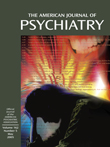Dr. Dalton and Colleagues Reply
To the Editor: We introduced the healthy parenthood effect as a proposed explanation for the observed change in results according to which comparison group was used in our study of cancer risk in the parents of schizophrenic offspring. We compared the cancer rates in the parents of schizophrenic offspring (exposed group) to those of other parents, which we consider to be the most correct, and found no difference in cancer risk. When we included persons who had not had any children and used the general population rates of cancer as the comparison, a method similar to that of Dr. Lichtermann and colleagues, we also observed a reduced risk of several forms of cancer, in line with the findings of our Finnish colleagues. It is unlikely that our results were biased by the choice of start of follow-up because we followed up from the time of birth of the schizophrenic offspring in the exposed group in both analyses. We do not think that the results published by our Finnish colleagues are specific to the parents of schizophrenic patients but more generally to being parents. The healthy parenthood effect denotes selective processes that lead to the forming or initiation of a family and, second, to the maintenance of a relatively regular and healthy lifestyle when living a family life. This would probably mean that parents, compared to all adults, smoke less, drink less, exercise more, and so forth. The results that we highlight from the literature in our article as supporting the notion of a healthy parenthood effect include mainly cancer forms with a large environmental component. To the best of our knowledge, there have been no studies of the risk of cancer in parents in general and, as Dr. Lichtermann points out, most studies of cancer risk in cancer families will reflect the high-risk nature and report the higher risk of some forms of cancer with a large familial component. However, the study by Westergaard et al. (1996)—apart from reporting a high risk of testicular cancer in the fathers and brothers of testicular cancer patients—did indeed also find a reduced risk of overall cancer, a reduction mainly carried by reduced lung cancer and gastrointestinal cancer risk. The differences in cancer risk based on whether the exposed group is compared to only other parents or the total population in Denmark must somehow be connected to parental status, making the healthy parenthood effect a plausible explanation.



